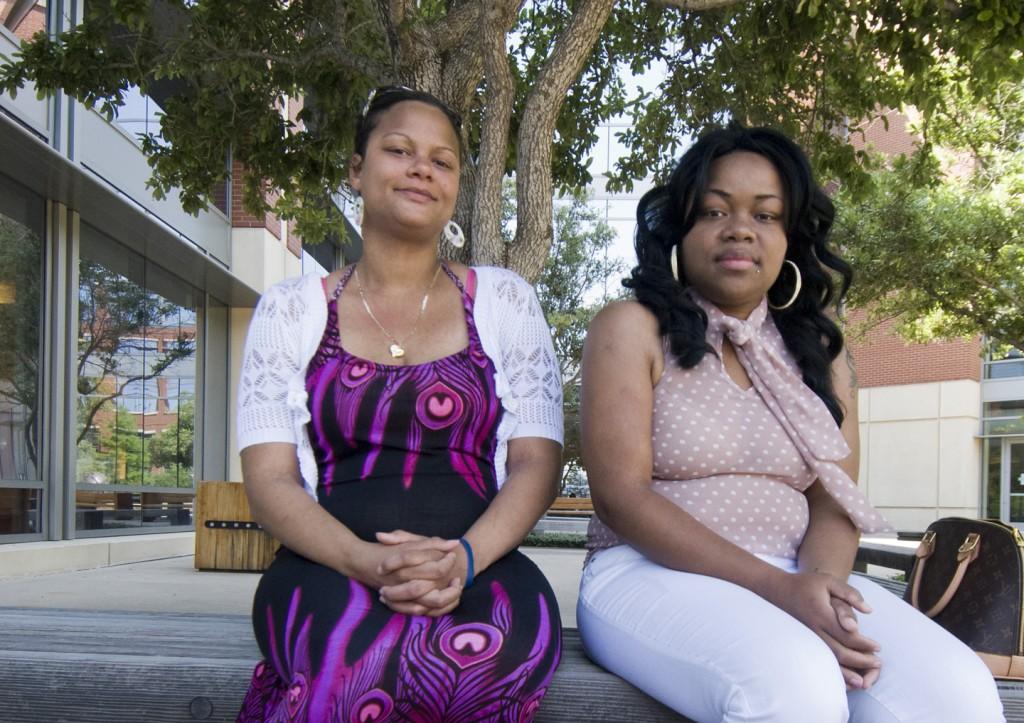By Kelli Henderson/entertainment editor
The first day of the 2012 spring semester started Jan. 17. Students came to school with books, laptops and outstanding warrants.
This time last year, officers made only three arrests in a four-month time span at TCC. This semester, there have been five times as many. A majority of them were found on NE Campus by TCC police performing traffic stops.
Citizens can receive two types of warrants. Arrest warrants are those given when one is suspected of committing a crime. Bench warrants are for those who have committed an offense to the court, like failure to show up on specific dates or failure to pay traffic tickets. A warrant means that a person, if found, can be arrested on the spot, no matter what the warrant is for.
In documents obtained in an open records request by The Collegian, 15 students were arrested on TCC campuses between January and April. Sixty-seven percent of the arrests were on NE, 20 percent on South and a combined 13 percent on SE and TR.
The majority of those students had warrants for multiple speeding tickets, failure to show a valid driver’s license or no driver’s license at all and expired license plate or inspection.
Though the students were contacted, none wished to comment.
TCC police Lt. David Herndon, stationed on NE, said though the majority of those stopped are students, some are just citizens who pass through the college and run stop signs. Many have just one or two warrants, but he has seen some violators with up to nine.
Because a warrant is due to a failure to act on deadline, Herndon said he has heard excuses in the past including forgetfulness, failure to compile certain amounts of money or attorney issues.
“One of the things that we do tell them, if you do get stopped, even if we give you a ticket and you can’t pay for it, talk to the court,” he said. “They’ll try to do payment plans if it is found you have to pay the citation.”
After making the arrest, the officer must file paperwork at the campus police department and then take the violator to the jail in the city of the warrant if possible. Students arrested are still allowed to attend school after their arrests.
“We have actually had a couple people say thank you,” Herndon said. “Because when they went to jail, it got that burden off of them, that cloud that was over their head. They were able to go ahead and take care of it, return to school and finish out the semester.”
TCC police Chief Shaun Williams has been a police officer for 25 years and has seen his share of arrests for warrants.
“It crosses all age groups, all gender, all social and economic status,” he said. “Some people you arrest would totally understand that you were just doing your job. Sometimes they wouldn’t. It all goes back to how the officer treats the person [they] come in contact with as well. Because if you act professional to the person you are arresting in a very professional manner, you’d be surprised how well the arrest will go.”
Students can take several steps if faced with a warrant.
Numerous websites help people search for warrants that may have been unknown until that point. The court can also help, and many can go to attorneys to seek help.
Many people believe if they call to ask about a warrant, they will be arrested on the spot, but Williams said that’s not the case.
“The easiest way — and yes, you can do the websites — but if you know you have a ticket, call the municipal court,” he said. “Say, ‘Let me just check and see whether I have a warrant.’ They will be more than happy to tell you. They want you to do that because you can get it taken care of a lot easier.”
The court can set up a payment plan that will fit a person’s schedule or, in some cases, waive additional charges added to the fines.
If those arrested have the money, they can pay it then and there, Williams said.
“As a matter of fact, in Arlington, especially on a weekend night, they would prefer you do that [pay the warrant] instead of having to go through the process of booking you,” he said. “They’ll just take you around to the window, and they’ll let you pay it, credit card, however you want to pay.
Williams said he has seen some of the younger students pay the fines by sitting in jail instead of paying money.
“I know a lot of especially some of the younger students we come across, they owe like $400-$500,” he said. “They’ll just sit it out and pay it that way, and when they get out, it’s free and clear.”
Though it is the campus police’s job to arrest those with warrants, some students see it differently.
NE student Reagan Borgman said she thinks it would be best if the police could let the students at least finish their day at school.
“If you just ran a stop sign and you’re going to get arrested for it, I mean, of course it’s the law, but it’s hard to agree with it,” she said.
NE student Erin Wayland said she agrees with Borgman and that she had heard of arrests made by TCC police but had never seen it before.
“I mean it makes sense, but at the same time, it’s kind of ridiculous,” Wayland said. “You’re at school to learn. They could say something to them at least, like who the person is but not pull them out of school.”
Failing to pay tickets or showing up to court dates can lead to bigger consequences, but Williams said after the warrants are paid, those who have been arrested should not hold the arrest over their heads.
“This is a misdemeanor warrant,” he said. “It’s not something that’s going to follow you when you’re trying to get a job … You might have to explain it later on down the road, but it’s just a traffic warrant.”
For students who do not know or are unsure of their warrant status, go to www.peoplepublicrecords.org.


























